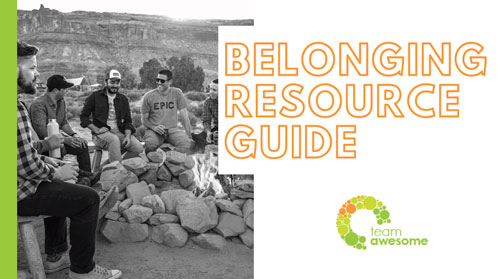Not everyone that you work with in your organization is equipped to give you exactly what you need in your career, and that is okay. It is within your control to be an advocate for what you need, and help those around you deliver on the best help they can offer you. Sometimes we step back from advocating for ourselves and our ideas at work because of fear of what might happen, or because we assume that others with higher roles or more experience than us know best how to navigate the situation. But here’s the rub. Sometimes, leaders have blind spots. Groups agree all too easily on bad decisions. Or, you are leaving your path in the hands of others who don’t know what you need the most. Only you know what you need, so advocating for yourself even when it feels hard or unpopular might be exactly what’s missing from your work mojo.
Here are some ways that you can advocate for yourself at work to get what you need for your professional development:
Ask for what you need
Sometimes the opportunities we miss most frequently are right in front of us, with our own supervisor, or with a close coworker. Consider this: let’s say you and your boss are discussing a roadblock you are hitting, and they say, “I’ll send out that email to solve _____ issue.” They jump to fixing. You have a choice in that moment to either (A) allow them, or (B) advocate for what you really need. This might be saying, “I feel comfortable sending that email and resolving the issue. I really just needed to talk this through with you to make sure we were aligned, and so you could point out any blind spots I might be missing. I’ve got this.” In this case, you really needed a coaching approach, not for them to take on any responsibility for solving the issue. Ask, and [usually] you shall receive.
Be specific requesting feedback
When you ask someone, “Do you have any feedback for me?” it can seem too broad and overwhelming for the other person. Instead, request more pointed, specific feedback to get a more specific response. For example, following a staff meeting ask a trusted feedback partner, “I am really working on communicating effectively when I want to oppose an opinion or support an unpopular view. How do you think I did in that meeting responding to Linda?” Another tactic can be asking for “Feedforward,” or suggestions for things you could do in the future.
Challenge your own assumptions
What assumptions are you making that may be holding you back? In the past, I had made up assumptions that people viewed me a certain way as I returned from maternity leave, or that my organization didn’t really support me going out to networking events because no one else in my company spent time doing so. After reexamining, I made up those stories to tell myself in the absence of other supporting information. In reality, people weren’t viewing me as I assumed they were as a new mom (not that it mattered, that wasn’t going to change) and just because people weren’t networking didn’t mean that it wasn’t supported for me to do so.
Recognize when you balk at taking action
Can you recognize when you are about to say or do something, then in a matter of seconds decide not to? If you think back to those moments where you remember a specific physical, internal reaction, most of those are times when you regret not speaking your mind or taking action. What stops us is fear. Instead, recognize the physical feeling or the thoughts that surface so you can recognize the moment as the opportunity to advocate for yourself or your idea, even if it isn’t a popular viewpoint at the time.
Prepare for next time
Once you recognize the moment that you are taking pause instead of acting, you can prepare your own plan for what you do in that situation the next time it comes up. Some people benefit from taking a pause, and saying, “I will think about that and get back to you” rather than making a rushed response on the spot. Others benefit from having some planned go-to phrases or questions to use in that situation. For example, early on in my first role as a manager, being courageous to give tough feedback was challenging for me. As a result, I figured out some phrases that I could say to bridge me to the tough part, like interjecting, “Can I be really honest with you?” It helped me put it out there without blurting out some criticism out of the blue. Plan how you want to be in challenging situations, and when they come up, you can execute the plan.
Are you ready to align yourself with what is important to you and ask for what you need? If you don’t, who will?
About the author:
Katie Rasoul is the Chief Awesome Officer for Team Awesome, a leadership coaching and culture consulting firm. Find out more by visiting www.teamawesomecoaching.com or sign up for our mailing list for awesomeness coming straight to your inbox. Follow Team Awesome on Facebook and Twitter.



Recent Comments